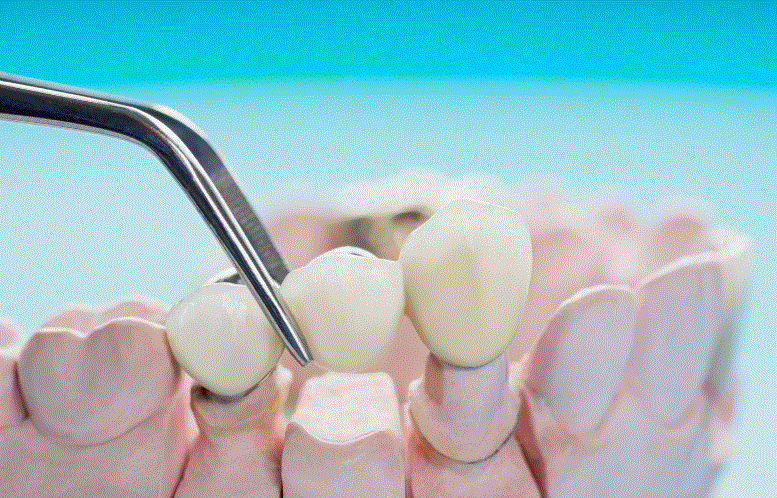Modern dentistry offers various treatment options for missing teeth, with dental bridges being a popular choice. However, like any medical procedure, dental bridges come with their own set of pros and cons. If you’re considering a San Jose bridge to address missing teeth, this guide will provide you with essential information to make an informed decision.
What is a Dental Bridge?
Missing teeth can be both a cosmetic concern and a potential cause of dental and periodontal issues in the future. A dental bridge is a highly effective treatment option that replaces one or more missing teeth, restoring both the appearance and functionality of your smile.
Dental bridges work by securing two crowns to the healthy teeth adjacent to the gap left by the missing tooth or teeth. Between these crowns is a pontic, or false tooth, that fills the gap. The bridge is designed to match the color and appearance of your natural teeth, ensuring it blends seamlessly into your smile.
How Does a Bridge Differ from Other Options?
Dental bridges differ from other tooth replacement options like partial dentures and dental implants. Partial dentures fit onto your gums and are designed to be removed for cleaning. In contrast, a dental bridge is permanently affixed to your existing teeth, and you care for it just like your natural teeth.
Unlike dental implants, which are also permanent, a bridge is secured to neighboring teeth rather than being anchored directly into the jawbone. Implants involve placing a titanium fixture into the jawbone, which then supports a crown.
Pros of Dental Bridges
Dental bridges offer numerous benefits, making them a suitable choice for many patients.
More Secure and Comfortable than Dentures
Partial dentures are secured to the gums with a temporary sealant, which can be uncomfortable and messy. The seal provided by dentures is not as secure as the permanent attachment of a bridge. Additionally, bridges are cleaned like natural teeth, eliminating the need for removal and soaking, which is required with dentures.
Faster Than Implants
Dental bridges typically require only two appointments spaced relatively close together. In contrast, dental implants may take longer to complete because the jawbone needs to heal around the implant before the permanent crown can be placed.
Cost-Effective
Bridges are generally less expensive upfront than implants. Moreover, dental bridges are often covered by insurance, whereas implants are less likely to be covered.
Suitable for Replacing Multiple Teeth
If you are missing multiple teeth in a row, a bridge might be more practical than implants. Each implant requires a separate insertion into the jawbone, which can be costly and impractical. A bridge can span one or several missing teeth.
Viable for Patients with Insufficient Bone Health
Dental implants require a sufficient jawbone structure for secure placement. Bone grafting might be an option for those with insufficient bone, but it can be extensive and costly. In contrast, a bridge is affixed to existing teeth, not the underlying bone, making it a better option for some patients.
Cons of Dental Bridges
While dental bridges have many advantages, there are also potential drawbacks to consider.
Longevity
Dental bridges typically last between 5 to 10 years, whereas dental implants can last 15 years or longer. This shorter lifespan may mean additional procedures down the line.
Impact on Surrounding Teeth
Bridges require healthy adjacent teeth for support. These teeth must be filed down to fit the crowns, which can cause some damage. Dental implants, on the other hand, do not affect surrounding teeth as they are anchored directly into the jawbone.
Risk of Decay
Missing teeth can increase the likelihood of decay and cavities in neighboring teeth. While a bridge helps prevent teeth from shifting into the gap, there remains a slightly higher risk of decay compared to implants. Maintaining exceptional oral hygiene and regular dental visits can mitigate this risk.
Conclusion
Choosing a dental crown san jose ca to replace missing teeth is a significant decision that involves weighing the pros and cons. Dental bridges offer a secure, comfortable, and cost-effective solution for many patients, especially those who are not suitable candidates for implants. However, they may require more frequent replacements and can impact surrounding teeth. Consulting with your dentist will help you determine if a dental bridge is the right choice for your specific needs.

